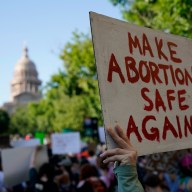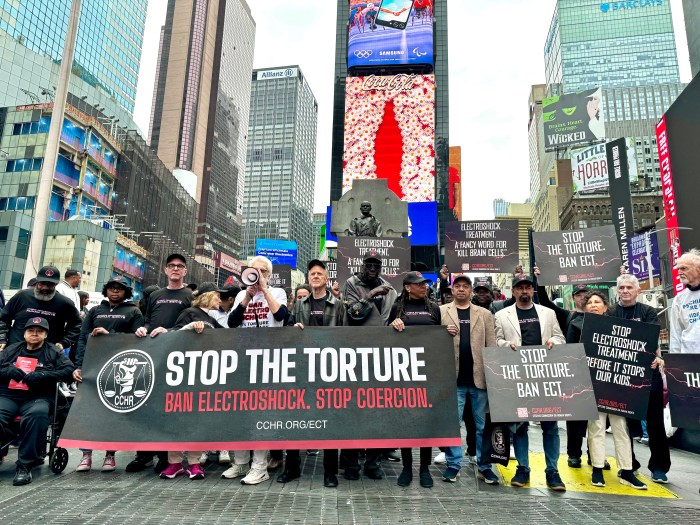 Porn star James Deen and Lindsay Lohan play bored richies in “The Canyons.”
Porn star James Deen and Lindsay Lohan play bored richies in “The Canyons.”
Credit: IFC Films
‘The Canyons’
Director: Paul Schrader
Stars: James Deen, Lindsay Lohan
Rating: R
2 (out of 5) Globes
The opening and closing credits of “The Canyons” offer montages of dead suburban movie theaters, with letters missing on the marquees and seats in disarray. It’s a haunting way to start (and close) a movie, and it seems that what director Paul Schrader is saying — as Jean-Luc Godard did half a century ago with “Weekend — is that cinema, once again, in some form at least, is dead.
It’s also a bit misleading. What’s in between isn’t as earth-quaking. In fact, it’s downright retro, offering a modern, technologically enhanced twist on an old statement: Modern life is rubbish, especially as lived by bored richies.
That sentiment isn’t the provenance of Schrader much as it is of the screenwriter, Brett Easton Ellis. The script follows a young movie producer (porn star James Deen, whose natural spiritless smirk is Ellis incarnate) who grows green when his girlfriend (Lindsay Lohan) reunites with an old lover. Things turn Ellis-style grisly eventually — very, very eventually. Till then it’s a series of disconnected chats and hangout scenes, where people robotically spend time together, all the while checking their phones. No one enjoys anything, even the sporadic bouts of sex, where the nudity, if not the actual action, is graphic. Everyone’s so used to the gorgeous Malibu vistas that they no longer notice them.
Inevitably, the press on “The Canyons” has focused on its turbulent production, partially (but, for a change, not wholly) brought on by Lohan, who’s working with her first respected director since Robert Altman’s “Prairie Home Companion.” Back then she was a promising thespian coming, many hoped, into her own. But this is neither a comeback nor yet another Schadenfreude-laden disaster. She lets her natural demeanor — almost grizzled at only 27 — do the heavy lifting. When Deen’s character forces her to have sex with clients, as he does more than a couple times, she complies with the weary complacency of someone who’s bottomed so many times they’re no longer trying to climb up. For what it’s worth, Jennifer Lawrence couldn’t nail this role.
The real draw, though, is the bizarre pairing between Schrader and Ellis. The two share one commonality: They both made key texts of 1980s Los Angelino excess — Schrader with “American Gigolo,” Ellis with “Less Than Zero.” (Ellis’ “American Psycho” was released in 1991, as a look back at the decade.) Schrader’s heavyocity and Ellis’ smugness are an awkward match, and not always productively so. Ellis has written a lot of chatty conversation scenes, which Schrader shoots with a sluggishness that’s half-intentional and half actually sluggish. It’s a comment on The Way We Live Now,where cell phones have disconnected us even more, while making snooping easier. When Lohan announces she knows Deen monitors her phone activity, she says it as though she had no way to stop him.
This isn’t exactly news, but at its best “The Canyons” is more of an embodiment of our early decade’s angst than a revelation of it. Other times, the mood breaks, the team-up between director and screenwriter seems like mere novelty, and the film, like other Ellis works, simply seems to be stating the obvious. Schrader’s studied style tempers the smugness of Ellis’ approach, while Lohan gives it a broken humanity. It’s likely that mass audiences will hate “The Canyons” even more than they hated “I Know Who Killed Me.” But it’s somewhere between a chilling portrait of our era and a film that doesn’t have enough to say.
















